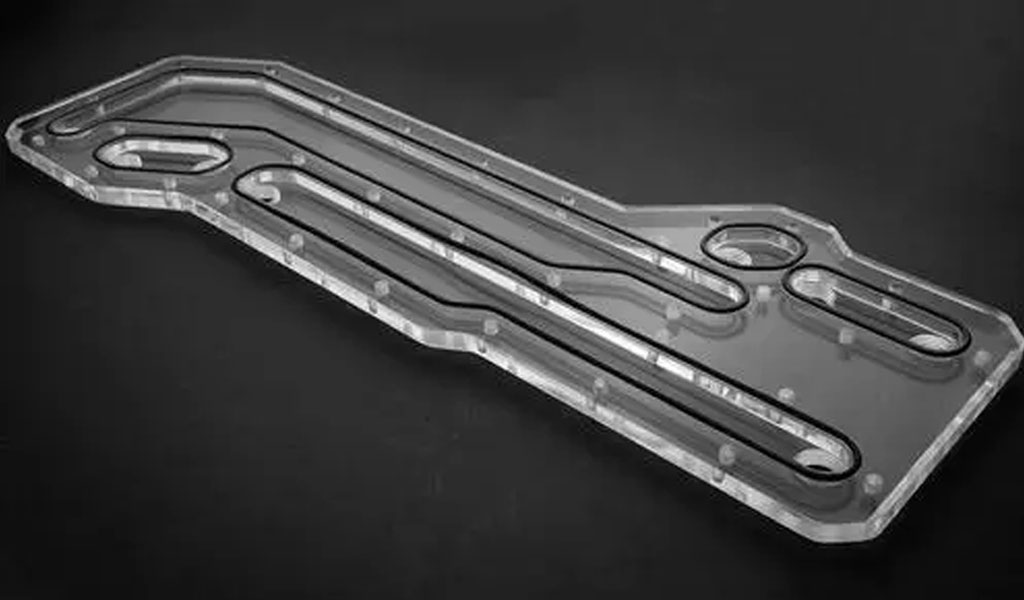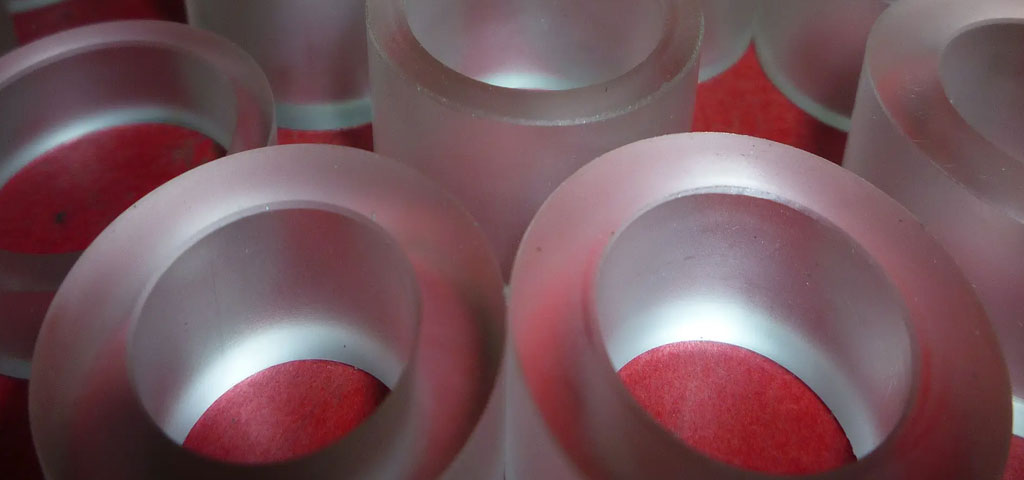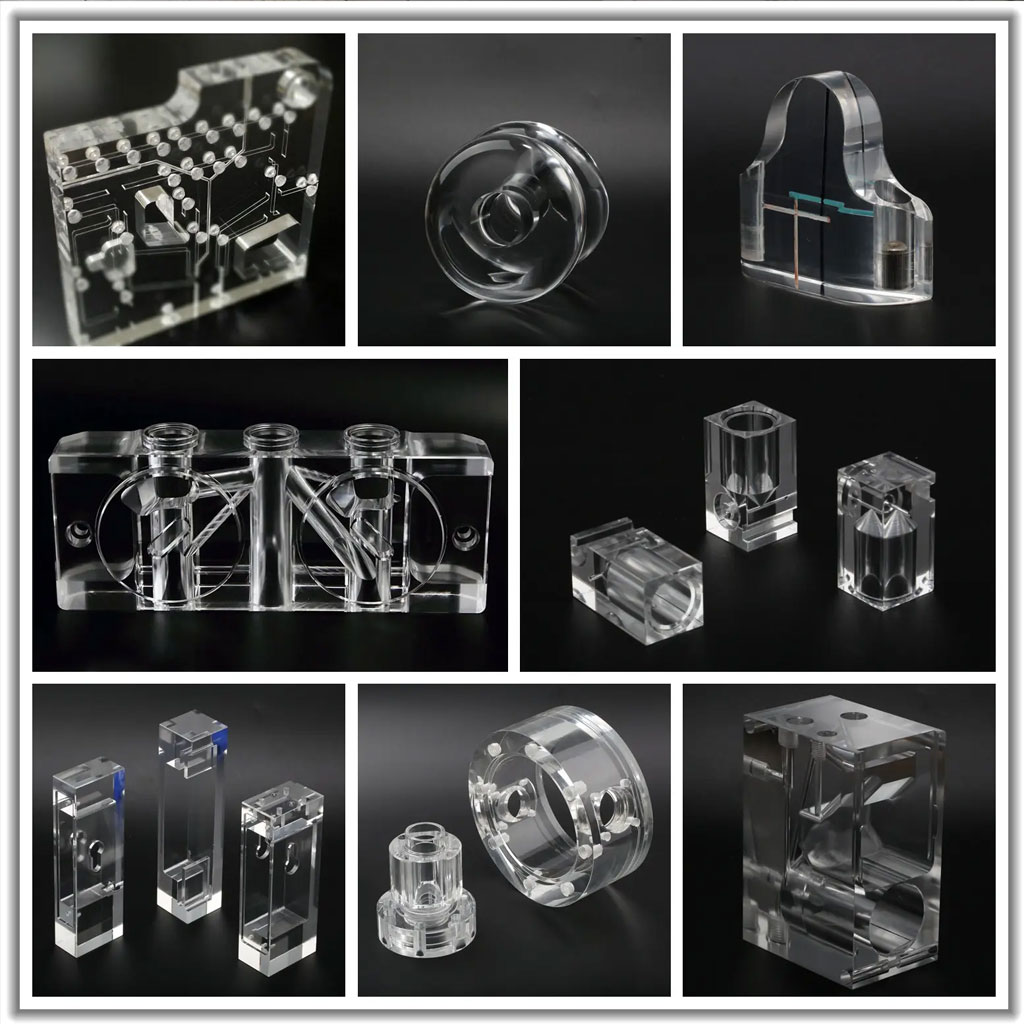CNC machining has revolutionized manufacturing across various industries, offering precision, efficiency, and versatility. Among the multitude of materials used in CNC machining, Polymethyl methacrylate (PMMA), commonly known as acrylic or Plexiglas, stands out for its unique properties and applications. This comprehensive guide aims to delve into the fundamentals, advantages, and best practices associated with PMMA CNC machining.

Understanding PMMA – What Is PMMA
Polymethyl methacrylate (PMMA) is a transparent thermoplastic polymer that belongs to the acrylic family. Also known as acrylic glass or by the trade names Plexiglas, Acrylite, and Lucite, PMMA is derived from petroleum-based compounds and is widely recognized for its optical clarity, light transmittance, and versatility. It was first developed in the early 20th century and has since found extensive applications across various industries due to its exceptional properties.
The Properties of PMMA
- Optical Transparency: PMMA boasts excellent optical clarity, transmitting light as effectively as glass but weighing half as much.
- Mechanical Strength: While not as strong as some other plastics, PMMA exhibits good impact resistance, making it less prone to shattering or breaking than glass.
- Weather Resistance: PMMA is highly resistant to weathering, maintaining its transparency and physical properties even after prolonged exposure to sunlight, moisture, and varying temperatures.
- Chemical Stability: It is resistant to many chemicals, including acids and alkalis, which contributes to its durability in various environments.
- Machinability: PMMA is easily machinable using CNC milling, drilling, turning, and engraving techniques, allowing for precise shaping and customization.
- Lightweight: PMMA’s low density makes it a favorable alternative to glass in applications where weight is a concern.
- UV Stability: It possesses good resistance to ultraviolet (UV) radiation, making it suitable for outdoor applications without significant degradation over time.
- Thermal Insulation: PMMA exhibits better thermal insulation properties compared to glass, providing some energy-saving benefits in construction applications.
- Ease of Coloring: It can be easily dyed or pigmented, offering a wide range of color options for various applications.
Understanding these properties is crucial for leveraging PMMA effectively in acrylic CNC machining processes, ensuring optimal results and performance in different applications across industries.

Where Does PMMA Plastic Come From?
Polymethyl methacrylate (PMMA) is a synthetic polymer that is derived from petrochemicals. It is manufactured through a chemical process involving the polymerization of methyl methacrylate (MMA), which is a monomer derived from natural gas, petroleum, or other sources of hydrocarbons.
The production process typically involves several steps:
- Raw Material Extraction: Raw materials such as natural gas or petroleum are refined to obtain the necessary components used in the production of MMA.
- Methyl Methacrylate (MMA) Production: The key precursor, MMA, is produced through the reaction of acetone and hydrogen cyanide or by the catalytic process of combining acetone and methanol.
- Polymerization: The MMA monomer undergoes a polymerization process, where numerous MMA molecules chemically bond together to form the long-chain polymer known as PMMA. Polymerization can occur via various methods, including bulk polymerization, solution polymerization, or suspension polymerization.
- Processing into PMMA Products: The PMMA resin obtained from the polymerization process is then processed further to create different forms, such as sheets, pellets, granules, or other shapes, which are used as raw materials in manufacturing various products.
- Manufacturing of PMMA Products: These PMMA raw materials are further processed through methods like extrusion, casting, or injection molding to produce finished products such as sheets, tubes, rods, blocks, and custom parts used in various industries.
The manufacturing of PMMA involves advanced chemical processes and industrial techniques, resulting in a versatile material that possesses desirable properties such as transparency, impact resistance, weatherability, and machinability. The widespread application of PMMA in diverse industries is a testament to its utility and adaptability as a plastic material derived from chemical synthesis.
The Benefits of PMMA CNC Machining
PMMA CNC machining offers numerous benefits, making it a preferred method for fabricating precise components across various industries. Here are the key advantages of utilizing PMMA in CNC machining processes:
1. Precision and Accuracy
PMMA CNC machining enables high precision and accuracy in creating intricate designs and complex geometries. Computer-controlled tools ensure consistency and adherence to tight tolerances, resulting in parts with precise dimensions and minimal error margins.
2. Versatility in Design
The versatility of CNC machining allows for the production of PMMA components in diverse shapes, sizes, and complexities. From simple to highly intricate designs, CNC machining offers the flexibility to fabricate customized parts according to specific requirements, facilitating innovation and unique product development.
3. Cost-Effectiveness
Efficient material usage and reduced wastage make PMMA CNC machining a cost-effective solution, especially for prototype development or small production runs. The ability to program and automate machining processes minimizes labor costs and increases overall production efficiency.
4. Surface Finish Quality
CNC machining provides excellent surface finishes on PMMA components, reducing the need for additional polishing or finishing processes. Smooth surfaces and sharp edges can be achieved directly from the machining process, meeting high-quality standards for various applications.
5. Material Properties Retention
PMMA’s inherent properties, such as optical clarity, transparency, and impact resistance, can be maintained during CNC machining processes. Proper machining techniques ensure that the material’s desirable characteristics remain intact in the finished parts.
6. Rapid Prototyping and Production
CNC machining of PMMA allows for quick turnaround times in prototyping and production. Computer programming facilitates rapid adjustments and modifications to designs, enabling faster iterations and shorter lead times for the development of new products or parts.
7. Complexity Handling
CNC machines excel in handling complex shapes and designs with ease. PMMA CNC machining processes can accomplish intricate details, sharp corners, fine engraving, and precise features that might be challenging or impossible with other manufacturing methods.
8. Material Stability
PMMA is known for its stability, maintaining its properties over time. CNC machining ensures that this stability is preserved during the fabrication process, resulting in consistent and reliable PMMA components suitable for various applications.
9. Reduced Tooling Costs
Compared to traditional manufacturing methods that require specific tooling for each component, CNC machining allows for the use of versatile tools across multiple projects, reducing tooling costs and setup times.
10. Environmental Considerations
PMMA is recyclable, and CNC machining processes can minimize material waste through precise cutting and efficient utilization of raw materials, contributing to sustainable manufacturing practices.
PMMA CNC machining offers a multitude of advantages, including precision, versatility, cost-effectiveness, and the ability to maintain material properties, making it a highly desirable manufacturing method for producing intricate and high-quality components across various industries.
What Types Of PMMA Plastic Are Used In CNC Machining?
In CNC machining, different types of PMMA plastic can be utilized based on the specific requirements of the project or application. The most commonly used types of PMMA plastics in CNC machining include:
| PMMA Plastic Type | Description | Advantages in CNC Machining | Applications in CNC Machining |
|---|---|---|---|
| Cast PMMA | Produced by pouring liquid resin into molds and solidifying it. | – Exceptional optical clarity – Superior surface finish – Good machinability | Prototyping optical components, high-end signage, detailed machining |
| Extruded PMMA | Manufactured by forcing molten resin through a die, forming continuous shapes. | – Cost-effective – Moderate impact resistance – Decent optical clarity | Parts where cost is a factor, less intricate machining requirements |
| Impact-Modified PMMA | PMMA blended with other materials to enhance impact resistance while maintaining clarity. | – Improved impact resistance – Retains optical clarity | Prototyping parts subject to mechanical stress and potential impact |
| UV-Resistant PMMA | PMMA formulated to withstand UV radiation better, preventing degradation from sunlight exposure. | – Maintains optical clarity over extended outdoor use – UV resistance | Outdoor signage, architectural parts, components exposed to sunlight |
| Colored PMMA | PMMA that can be easily pigmented to achieve various colors while retaining some transparency. | – Wide range of color options – Retains some transparency based on color concentration | Customized designs, parts requiring specific aesthetic appearances |
What Are The Most Common PMMA CNC Machining Processes?
In PMMA CNC machining, several processes are commonly employed to shape, cut, and mill PMMA materials into desired components. The most prevalent CNC machining processes used for PMMA include:

1. PMMA Milling
Description: Milling involves using rotating cutting tools to remove material from a solid PMMA block or sheet. The cutting tool moves along multiple axes to create various shapes, slots, holes, and surface finishes.
Advantages:
- Precision cutting for complex shapes.
- Versatility in creating intricate designs.
- Efficient material removal.
Applications:
- Prototyping intricate components.
- Creating precise PMMA parts for various industries.
- Detailed engraving and texturing.
2. PMMA Drilling
Description: Drilling in PMMA CNC machining involves using rotating cutting tools to create holes of varying diameters and depths in PMMA sheets or blocks.
Advantages:
- Accurate hole creation with specific dimensions.
- Capability to produce holes in different orientations.
Applications:
- Creating holes for fasteners and mounting.
- Fabricating components requiring precise perforations.
3. PMMA Turning
Description: Turning is used to create cylindrical shapes by rotating the PMMA against cutting tools. This process is often used for creating rounded or cylindrical components.
Advantages:
- Efficient production of cylindrical parts.
- Suitable for symmetrical designs.
Applications:
- Manufacturing of rods, tubes, or circular parts.
- Components requiring rotational symmetry.
4. PMMA Engraving
Description: Engraving involves precision etching and laser cut acrylic of designs, patterns, or text onto PMMA surfaces using specialized cutting tools.
Advantages:
- Accurate replication of designs.
- Detailed customization on PMMA surfaces.
Applications:
- Decorative elements on PMMA products.
- Personalization of signage, displays, or artworks.
5. Polishing and Finishing
Description: While not a machining process per se, polishing and finishing techniques like flame polishing, buffing, or sanding are often employed post-machining to achieve desired surface smoothness and clarity in PMMA components.
Advantages:
- Enhancement of surface aesthetics.
- Removal of machining marks for a polished appearance.
Applications:
- Achieving high-gloss finishes on PMMA parts.
- Surface preparation for optical applications.
These PMMA CNC machining processes offer a diverse range of capabilities, allowing manufacturers to create intricate and precise components across various industries. The choice of machining process depends on the specific design requirements, tolerances, and the desired characteristics of the final PMMA product.
Conclusion
PMMA Plastic CNC machining is the ultimate solution for achieving precision and versatility in manufacturing. From aerospace to automotive, electronics to medical devices, the possibilities are endless. It offers high durability, lightweight properties, cost-effective production, and speedy turnaround time.
PMMA CNC machining proves that technology and creativity go hand in hand. So, if you want to be ahead of the game, choose PMMA CNC machining for your next project.
Be-Cu prototype inc provides the highest standard of pmma CNC service for all your needs. Contact us today to know more about what we offer!
